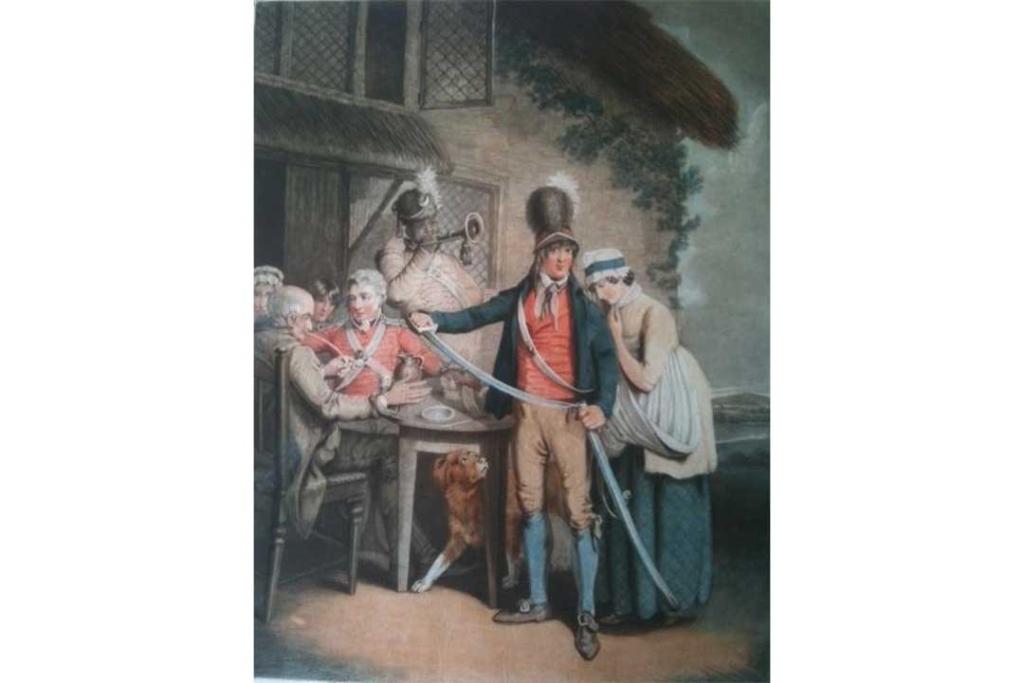Forgotten? : Black Soldiers in the Battle of Waterloo

The Recruitment Officer c1815, showing a Black trumpeter rallying locals. It is exceptionally rare to find an image depicting a Black soldier at the Battle of Waterloo. Image reproduced by permission of Leslie Braine-Ikomi
If Black British colonial troops have been long neglected by historians, the existence of any narrative around Black British soldiers enlisting in the United Kingdom in the Napoleonic Wars is even less known. Black soldiers based in the United Kingdom would seem to have been a component of the British army for a very long time and there is some evidence to suggest that the British Army actively sought black soldiers during the late eighteenth and early nineteenth centuries.
Individual Black soldiers are known to have taken part in many of the Napoleonic war campaigns, including the Battle of Toulouse, the Peninsular War, Quatre Bra, and the final battle to defeat the French Emperor Napoleon at Waterloo in June 1815. Who were these Black soldiers and where were they from? Whilst the majority of Black soldiers found can be identified as coming from the West Indies, reflecting the slave trade, others came in roughly equal measure from Africa, continental North America, (i.e. the United States and Canada), the East Indies and Britain and Ireland.
The 88th Foot had a number of Black soldiers serving with it in the Peninsular Campaign, and even after the Napoleonic Wars continued to recruit Black soldiers. One or two were even British-born, as Black people were being born in such ports at Liverpool at that time. “Both before and after the Battle of Waterloo, amongst other regiments, black individuals were to be found in the 13th light dragoons, the 10th Hussars and the 88th Foot. After the Napoleonic Wars, we also look at what happened to those who had taken part. Did some receive medals? Who looked after them in their declining years and did they receive pensions?
Although the numbers of Black soldiers may have been relatively small compared with the thousands who fought and died in this epic battle, the aim is to give these soldiers of African descent a deserved face and draw attention to the interest and importance of a previously under-researched history. I am inviting you to come along to the International Slavery Museum to listen to these forgotten accounts, and to perhaps rethink your perceptions of this phase of military history.
